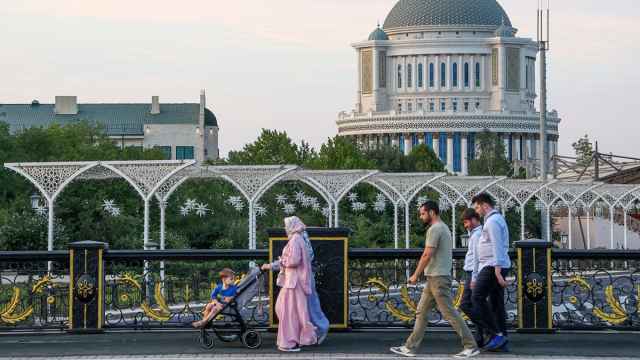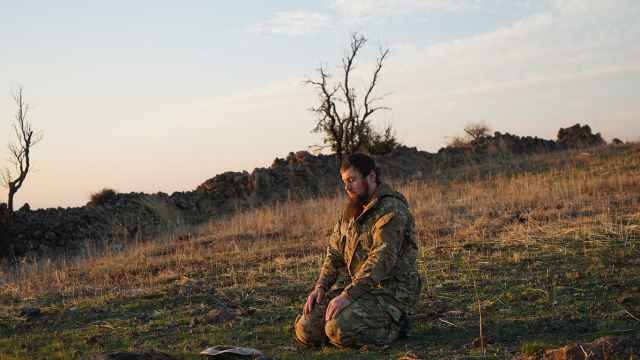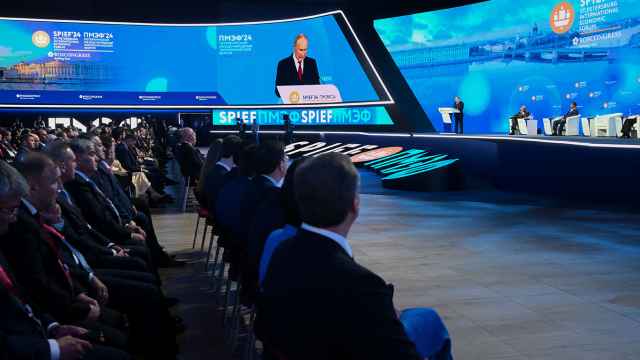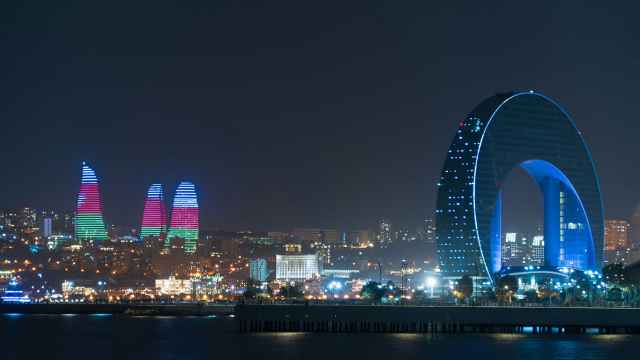ASHGABAT, Turkmenistan — A golden rotating statue of Turkmenistan's late eccentric dictator adorned the skyline of the energy-rich nation's capital again Monday, one year after its was toppled as authorities sought to dismantle the leader's overwhelming personality cult.
The Arch of Neutrality topped by the monument to Saparmurat Niyazov was officially unveiled during a lights and fireworks display to mark the 16th anniversary of Turkmenistan's declaration of neutrality at the United Nations.
The tower was once a centerpiece of Ashgabat and the most distinctive monument built in honor of Niyazov, who died unexpectedly in 2006. Now, it stands several kilometers away, on the outskirts of the city.
Once-omnipresent reminders of Niyazov have gradually been removed as authorities seek to highlight the profile of current President Gurbanguly Berdymukhammedov. The mythology surrounding Niyazov has been gradually chipped away, only to make way for similarly slavish adulation for Berdymukhammedov.
In a vein reminiscent of Niyazov's title of Turkmenbashi, or father of all Turkmens, state media now routinely refers to Berdymukhammedov as Arkadag, which is Turkmen for protector.
Even so, authorities have so far largely refrained from aping the megalomaniacal excesses of the Turkmenbashi era. Niyazov renamed cities, streets, months, periodicals and public organizations after himself and family members and made a two-volume spiritual tome he wrote mandatory reading.
Restoring the golden statue, on top of an even taller tower that now soars 95 meters, appears to suggest authorities are wary of jettisoning Niyazov's legacy wholesale.
Turkmenistan's declaration of neutrality in 1995 is a cornerstone of the diplomatically isolated nation's foreign policy and is still hailed in state media as a major achievement of the Niyazov era.
A Message from The Moscow Times:
Dear readers,
We are facing unprecedented challenges. Russia's Prosecutor General's Office has designated The Moscow Times as an "undesirable" organization, criminalizing our work and putting our staff at risk of prosecution. This follows our earlier unjust labeling as a "foreign agent."
These actions are direct attempts to silence independent journalism in Russia. The authorities claim our work "discredits the decisions of the Russian leadership." We see things differently: we strive to provide accurate, unbiased reporting on Russia.
We, the journalists of The Moscow Times, refuse to be silenced. But to continue our work, we need your help.
Your support, no matter how small, makes a world of difference. If you can, please support us monthly starting from just $2. It's quick to set up, and every contribution makes a significant impact.
By supporting The Moscow Times, you're defending open, independent journalism in the face of repression. Thank you for standing with us.
Remind me later.





